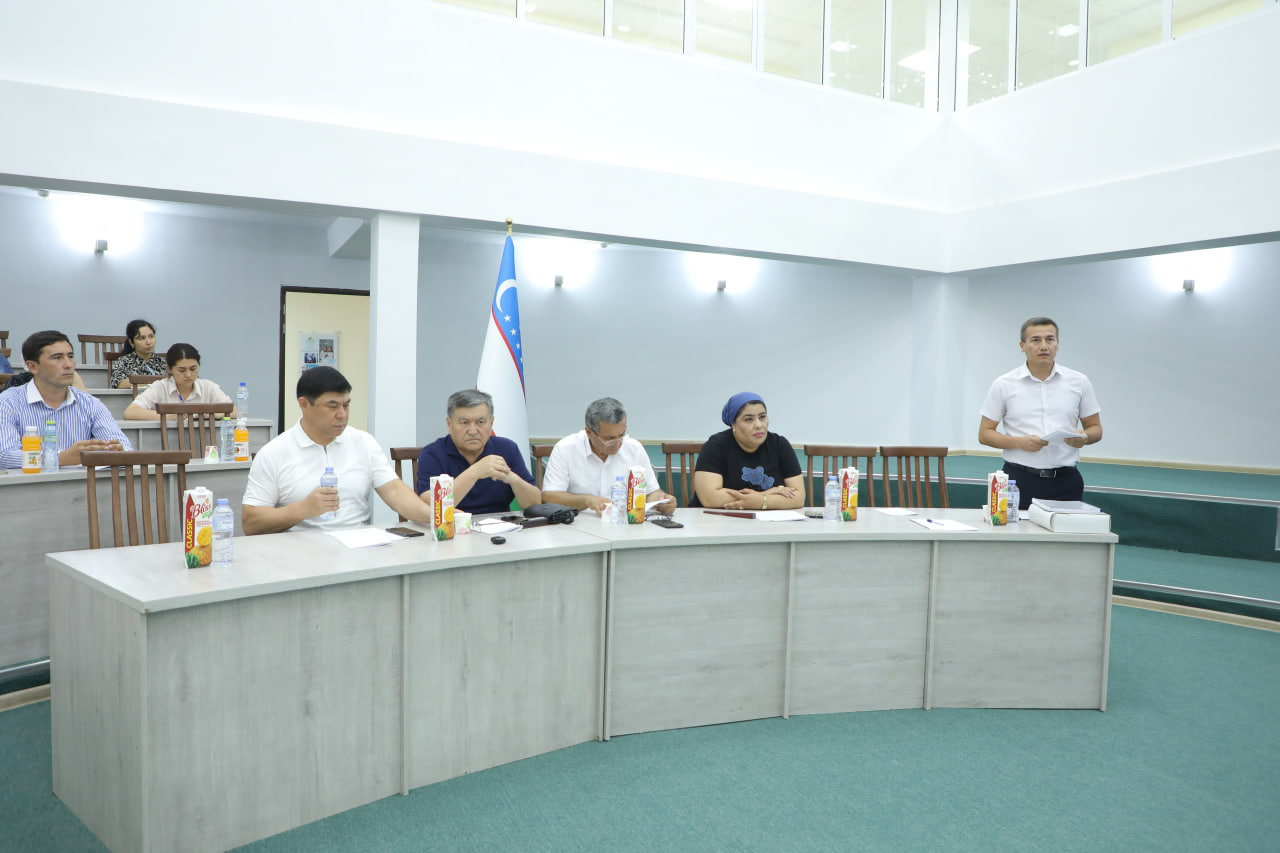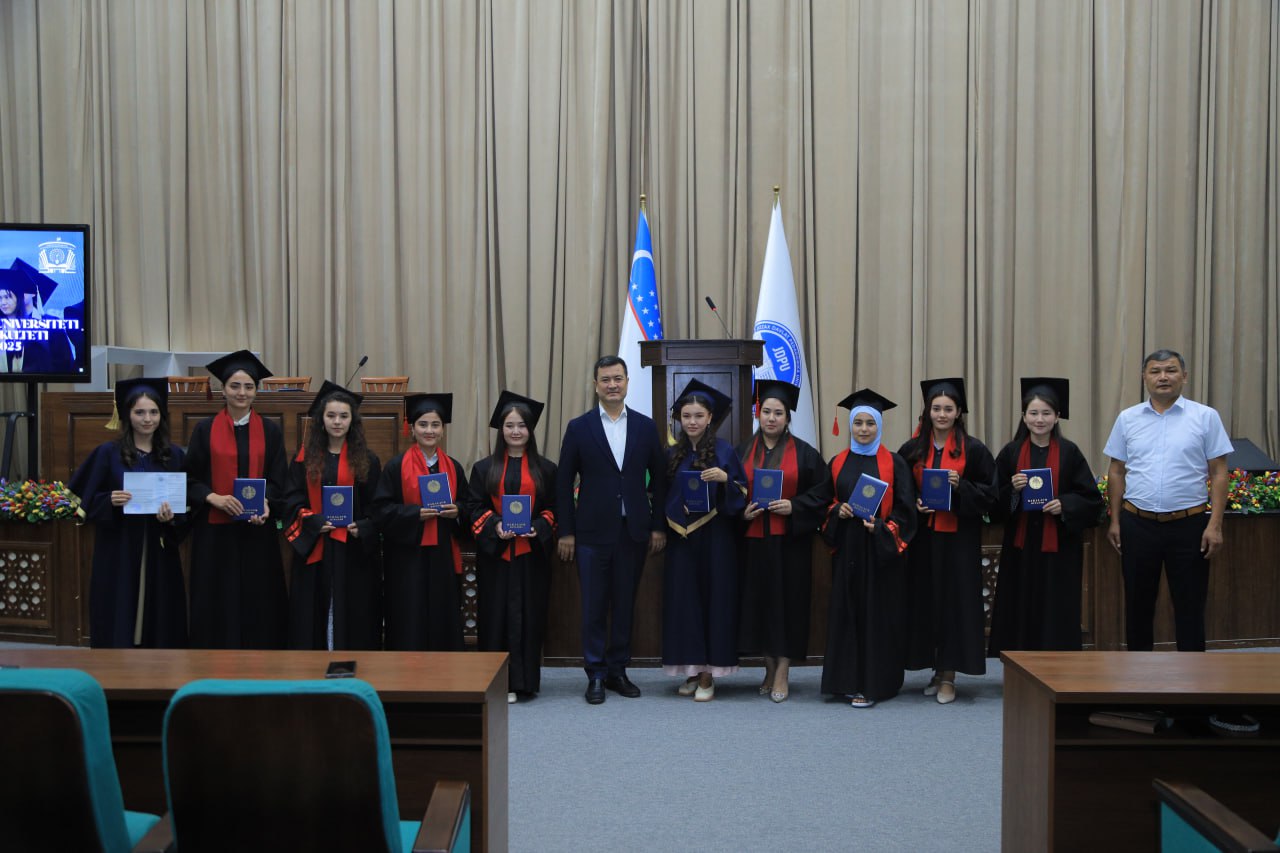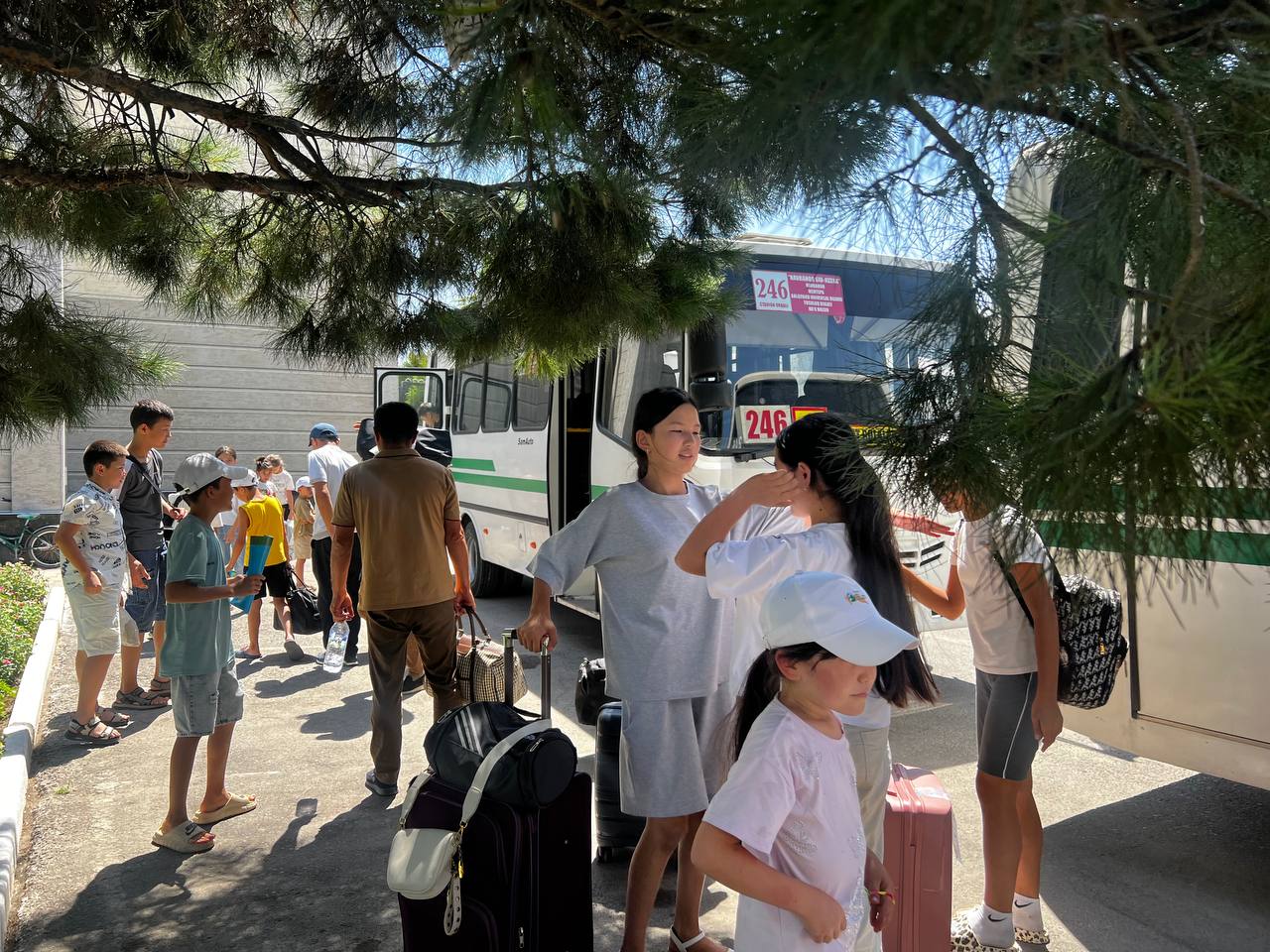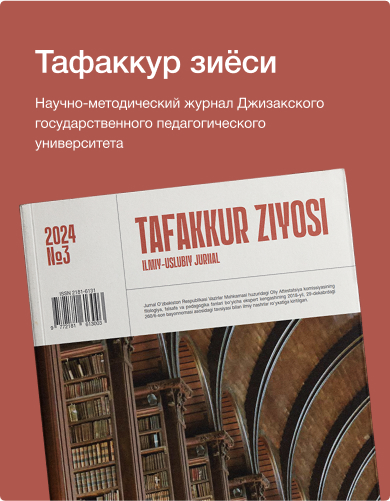Umida Musayeva Lecturer of Jizzakh State Pedagogical University
Annotation This article provides information on how to improve the socio-cultural competence of future teachers who are currently thinking innovatively in the process of digitalization of education.
Keywords: future teachers, education, digitization of education, socioculturality, compliance, improvement.
Currently, the head of our state pays great attention to the development of all spheres of society’s activities, their close connection with information and communication networks and gradual digitalization for functioning within the framework of international demand. The Decree of the President of the Republic of Uzbekistan dated October 5, 2020 No. PF 6079 “On the approval of the strategy ”Digital Uzbekistan 2030” and measures for its implementation ” implements programs for digitalization in the digital world, the development of digital technologies, consideration of new projects in the field of digital economy and the development of digital education. This decree provides for the following measures to improve digital skills in education:
-To master digital skills by providing digital technologies to students at the initial stage of education, creating opportunities, developing analytical and critical thinking, providing young people with knowledge and skills in the context of a large-scale digital transformation that will be necessary in the future;
-creation and implementation of a unified distance learning platform with a view to its application in all areas of learning in the future;
– general use of digital technologies for students to make permanent changes to the basic curricula of secondary schools;
– for the organization of training in the field of technological professions and innovative activities, the introduction of highly effective international practice in the education system;
– personnel in the direction related to information and communication technologies increase in the number of graduates of preparatory higher educational institutions, graduates of secondary vocational education institutions with an average level of competence in the field of information technology;
-digitization of educational materials in education by ensuring the development and support in higher education institutions of a single state requirement for the use and study of technologies of the Internet of Things, robotics, artificial intelligence in relevant fields, as well as formats for digitizing materials in paper form;
– development of research works in the field of digital technologies and stimulation, improvement of their organizational mechanisms;
-development and determination of the direction of creation of new search engines, including solutions for the search and identification of audio and video materials, the use of semantics in the search and retrieval of information, new technologies in machine translation systems, as well as the development of new algorithms and machine learning technologies;
– development of electronic educational resources for the system of preschool, secondary and higher education improvement, as well as the use of domestic and global educational resources to ensure;
-programs are being implemented for the development of human capital, including the development of specialized education and the popularization of professions in the IT field, improving institutional conditions for IT enterprises and reducing administrative barriers.
The President has developed a number of concepts and solutions for the development of the education system, including public education and higher education, and its improvement in accordance with today’s educational standards. In the research conducted by the world’s leading higher educational institutions and research centers on innovative training of future specialists, the introduction of modern education in the context of digitalization of education at the international level, special attention is paid to the implementation of the requirements of international educational standards on the criteria of professional skills of future teachers, the problems of creating an innovative educational environment.
An important place in this is occupied by scientific research aimed at expanding the structure of pedagogical competence of young teachers based on such indicators of successful application of modern information and pedagogical technologies in the educational process as motivational, cognitive, operational, reflexive and selfassessment. In our country, on the basis of advanced foreign experience, research work is being carried out to modernize the modern educational content of training future young teachers for the system of continuing education, to create an educational environment aimed at creating the necessary conditions to realize the inner potential of students.
The strategy of actions for the further development of the Republic of Uzbekistan defines such priority tasks as “further improvement of the system of continuing education, increasing the possibilities of quality educational services, continuing the policy of training highly qualified personnel that meet the modern needs of the labor market.” In this regard, it is important to improve the pedagogical system of the formation of the educational environment aimed at the development of socio-cultural competence. From a psychological point of view, competence refers to “having a plan of action in unconventional situations, unexpected situations, how a professional behaves, how he interacts with colleagues in a new way, performs ambiguous tasks, uses information full of conflicts in consistently developing and complex processes.” Competence requires the constant enrichment of specialist knowledge, the study of new information, and most importantly-the ability to search for scientific information, process it and apply it in their activities.
The issue of competence shows its relevance, great interest, as well as the importance and necessity of ensuring its effectiveness in the organization of the educational process. An important task of higher educational institutions is to form and ensure the personality of a teacher who is socially active and mobile, shows initiative, clearly understands his professional goals, has a high culture, innovative thinking and is ready to introduce innovations in education. Competence is the knowledge of a particular field. “Competence” (lot. competence-I achieve, I deserve, I deserve)
1) the scope of powers, rights and obligations of a certain state organization (local selfgovernment body) or official determined by law, charter or other act;
2) a set of knowledge, experience in a particular field. The social content of this concept is very broad, it is used in almost all spheres of production. Historically, with regard to the introduction of the concept of “competence” into the education system and the adoption of its meaning, the following stages are distinguished: At the first stage (1960 — 1970s), the concepts of “competence” and “competence” entered scientific circles and circulation, and the rules of their operation and application features were established.
For the first time, the term “competence” was introduced in 1965 by a lecturer at the University of Massachusetts N. I. Chomsky. The semantic boundary of this word is quite wide today, in fact, this word means “consent”, “consent”, “conformity to something”, “conformity”. Today, this word refers more to ”universal, that is, a universal set of general characteristics and requirements for conducting activities.” At the second stage (1970-1990-ies), the scope of the concept of “competence” increases dramatically, this word becomes a special concept and begins to understand a set of properties related to any area, and is also used in language theory, management, organization of communications. J.Setting himself a scientific task, Raven raises the question of what is equivalent to the competence of a specialist from the point of view of modern society, highlighting and pointing to 37 components of competence that ensure efficiency, and calling them “motivational abilities”.
At the third stage (1990-2001), the Bologna Declaration on the Law Enforcement and Development of Education was adopted all over the world, in the CIS, and in Russia in particular, one of the goals of the education reform was the question of “professional competence” as the main characteristic of the qualification indicators of a specialist.
Scientific and theoretical foundations of such problems as the intensification of education and the use of modern pedagogical and information technologies in the educational process, the competence of young teachers and the didactic requirements imposed on it, modern approaches to the content of this term, its components, stages of formation, the role of motivation in ensuring the effectiveness of training. K.J. According to riskulova, ”competence” means a set of professional laws, principles, requirements, rules, duties, duties and responsibilities, as well as personal deontological norms necessary for a person of a particular profession. And competence is related to the practical activity of a person and is determined by the ability to show the norms of competence in work experience based on creativity arising from the requirements of society”.
The concept of competence has a commonality in relation to the individual, while competence has the character of individuality. The main criterion of competence is determined by the result of productive activity, competitive training. The analysis of pedagogical and psychological literature and research works allowed us to identify different meanings of the concept of “competence”. These are the following: – ability to solve production issues; – ability to apply knowledge and skills in specific situations;
– a set of requirements imposed by an organization on an employee in order to form a quality activity of the subject;
– compliance of the employee’s standards of conduct with the requirements of the company;
– the total amount of knowledge, skills and abilities (BCM), abilities, motives, personality, communicative qualities and other concepts;
– high-quality preparation and skills of the employee for work;
– responsibility and competence in official duties;
– BCM+professionally important qualities combined with organizational context;
– deep understanding of professional experience;
– complex of personal qualities, individuality;
– criteria for effective production activity;
– creativity, etc.
In pedagogical activity, one of the most important components of the general structure of professional competence is socio-cultural competence. After all, the modern teacher not only gives the student knowledge, transmits information, information, but also acts as an intermediary between a developing personality and society. The expediency of the interaction of the ”child-person-society” relationship also depends on how competent and active the teacher is in public life. The main tasks of socio-cultural competence include such aspects as adaptation, social orientation, harmonization of personal and general social experience.
The degree of socio-cultural competence of the individual becomes important in the process of conducting mutual interpersonal relations, establishing activities. At the same time, according to the results of research conducted by psychologists, a special place is occupied by the formation of people’s level of social competence in the process of personal adaptation to new social, globalizing conditions. Environmental, political, ideological, and social changes determine not only the development of social thinking, but also affect people’s self-awareness, their life values, and personal problems. This poses to psychological science the task of creating programs aimed at increasing the level of competence of a person in solving problems related to his socialization, social adaptation. In our opinion, this task is of particular importance not only for interaction, but also for the activities of teachers responsible for the formation of a harmonious personality among students. Competence-based social behavior of a person is characterized by mechanisms of formation, tendencies of manifestation, motivation, interest in content, primarily the influence of the nature of the interaction “man-society” on social prosperity, development.
The analysis of the scientific literature carried out in order to determine the content of socio-cultural competence allowed us to identify the following specific aspects of it: firstly, socio-cultural competence can express the requirements of society and culture. In order to study the existing opportunities for the development of socio-cultural competence among students, the DTS and qualification requirements of the primary educational direction were studied, taking into account modern approaches to the process of training future teachers. The general requirements for the level of bachelor’s degree in primary education are as follows: ISS
– possess systematic knowledge related to worldview and social processes; know the basics of humanities and natural sciences, current issues of current state policy, be able to independently analyze social problems and processes;
– To know the history of the Fatherland, to be able to express and scientifically substantiate their opinions on cultural, national and universal values, to have an active point of view based on the idea of national independence;
– have a holistic view of the processes and phenomena occurring in nature and society;
– knowledge of legal and spiritual, cultural criteria that determine a person’s attitude to another person, society and the environment, the ability to take them into account in professional activities;
– know the ways of collecting, storing, processing and using information, be able to independently make informed decisions in their professional activities;
– have competitive general professional training in the relevant bachelor’s degree direction;
– be able to independently acquire new knowledge, work on yourself and organize your work on a scientific basis;
– must have a scientific basis and beliefs about a healthy lifestyle and the need to adhere to it, as well as skills and abilities for physical improvement. Qualification requirements for the professional activity of bachelors:
– skills related to the organization of pedagogical activity;
– skills related to research activities;
The process of developing socio-cultural competence requires taking into account the corporate foundations of the regular development of professional competence of future teachers on the basis of informing them about the reforms being carried out in our country, innovations and developments being created.
REFERENDCES
- O’zbekiston Respublikasi Prezidentining 2017 yil 7-fevraldagi PF-4947-sonli «O’zbekiston Respublikasini yanada rivojlantirish bo’yicha Harakatlar strategiyasi to’g’risida»gi Farmoni.
- O’zbekiston Respublikasi qonun hujjatlari to’plami, 2017 yil, 6-son, 70-modda.
- Richard E. Boyatzis. David C. McClelland: For The Wiley Encyclopedia of Personality and Individual Differences Volume IV: Clinical, Applied and Cross – Cultural Research. December 5, 2016
- J.Raven (1984). Competence in modern society: Its Identification, Development and Release. – UK. P.220
- Маркова А.К. Психология профессионализма. – М.: Знание, 1996. – 340 c.





